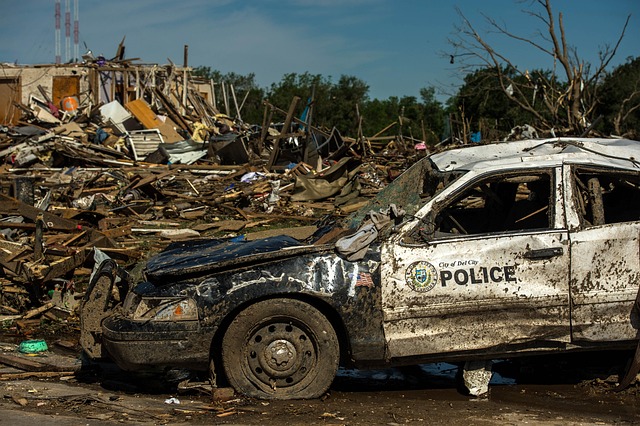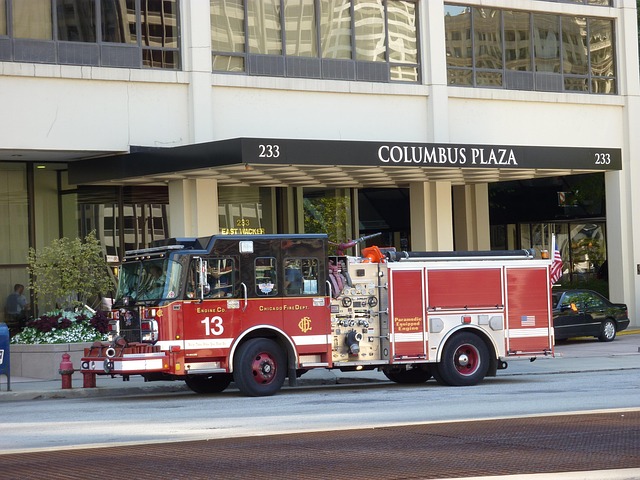In Chicago, distressed property sales, particularly of fire-damaged homes, are a significant segment of the real estate market, offering unique opportunities for buyers and sellers. Investors are drawn to potential flips or rental properties at discounted rates, guided by active local experts and regulations that ensure fair compensation for sellers while providing repair guidelines. Understanding this niche market is crucial for navigating Chicago's landscape, especially when selling fire-damaged houses. The process involves legal disclosures, strategic marketing, and compliance with Illinois law, which offers protections for "as-is" sales but requires legal consultation for sensitive damages. Successful strategies include transparent communication, emphasizing repairs and renovations, leveraging digital platforms with keywords like "sell fire damage house Chicago," and involving specialized professionals.
“Illinois, particularly Chicago, has witnessed a surge in distressed property sales, with fire-damaged homes presenting unique challenges. This article delves into the intricacies of these sales from a local perspective, offering insights for both sellers and buyers. We explore legal considerations, marketing strategies, and successful case studies, providing a comprehensive guide to navigate the process of selling a fire-damaged home in Chicago. Understanding these distressed sales is crucial for anyone looking to buy or sell in this dynamic market.”
- Understanding Distressed Property Sales: A Chicago Perspective
- Fire Damage: Navigating the Challenges of Selling a Burnt Out Home
- Legal Considerations for Sellers in Illinois
- Marketing Strategies for Attracting Buyers to Distressed Properties
- Case Studies: Successful Sales of Fire-Damaged Homes in Chicago
Understanding Distressed Property Sales: A Chicago Perspective

In Chicago, distressed property sales are a significant aspect of the real estate market, particularly when it comes to selling fire-damaged homes. These properties, often in need of extensive repairs or renovations, present unique opportunities for both buyers and sellers. Understanding this niche market is crucial for anyone navigating the Chicago real estate landscape. Fire-damaged houses, while requiring substantial investments for restoration, can be acquired at potentially lower prices compared to similar non-distressed properties. This makes them attractive to investors looking to flip homes or buy rental properties at a discounted rate.
The city’s bustling real estate community, with its network of experienced agents and renovation specialists, facilitates these transactions. Many buyers are drawn to the potential for transformation, seeing beyond the immediate damage to the eventual beauty and value that can be restored. Local regulations and insurance policies also play a role in shaping this market, ensuring that sellers receive fair compensation while providing guidelines for repairing and selling these distressed properties.
Fire Damage: Navigating the Challenges of Selling a Burnt Out Home

Selling a home damaged by fire can be a complex and emotionally challenging process, especially in competitive markets like Chicago. When a residence suffers significant fire damage, it’s not just about repairing the physical structure; it involves addressing various legal, financial, and emotional hurdles. Homeowners often find themselves navigating a labyrinth of challenges, from assessing the extent of the damage to understanding their insurance rights and obligations.
In Chicago, selling a fire-damaged property requires a strategic approach. Real estate agents specializing in distressed sales can be invaluable, offering guidance on preparing the home for sale, negotiating with potential buyers, and managing the complexities of insurance claims. The process may involve extensive repairs, rebuilding efforts, or even demishing and redeveloping the property, all while dealing with emotional attachment and financial uncertainties. Selling a burnt-out home in Chicago demands patience, persistence, and a deep understanding of local regulations and market dynamics.
Legal Considerations for Sellers in Illinois

When considering a distressed property sale, such as selling a fire-damaged house in Chicago, sellers in Illinois must navigate a series of legal considerations. Firstly, they need to ensure compliance with local and state regulations regarding property disclosure. Sellers are typically required to disclose any known issues or damage that could impact the property’s value, including fire damage. Failure to do so may lead to legal repercussions.
Additionally, Illinois law provides certain protections for sellers in distressed situations. For instance, the state has provisions for “as-is” sales, which can shield sellers from future claims related to undisclosed issues. However, these protections come with conditions and it’s crucial to consult a legal professional before proceeding with an “as-is” sale, especially when dealing with sensitive matters like fire damage.
Marketing Strategies for Attracting Buyers to Distressed Properties

In the competitive real estate market, particularly for distressed properties in Illinois, such as a sell fire damage house Chicago, unique marketing strategies are essential to attract buyers. The first step involves highlighting the property’s potential despite its distress. This can be achieved by emphasizing repairs and renovations that will transform the space, focusing on its location, and showcasing any positive aspects that set it apart from others in the area. Professional photography and virtual tours can play a significant role in this, as they allow potential buyers to visualize the property’s future rather than getting stuck on its current state.
Additionally, targeted marketing campaigns that reach specific buyer demographics are crucial. Real estate agents should leverage digital platforms to advertise these distressed properties, using keywords like “sell fire damage house Chicago” to appear in relevant searches. Social media advertising and partnerships with local renovation businesses or realty investment groups can also create buzz around the property, attracting buyers who appreciate a good bargain or those looking to invest in revitalizing areas of Chicago.
Case Studies: Successful Sales of Fire-Damaged Homes in Chicago

In Chicago, distressed property sales, particularly of fire-damaged homes, present unique challenges and opportunities. Case studies reveal successful strategies employed by real estate agents and investors who have navigated these complex sales. One notable example involves a three-bedroom home in a vibrant neighborhood that suffered extensive fire damage but was meticulously restored to its former glory. The key to its sale lay in transparent communication about the property’s history, strategic marketing emphasizing its potential for renovation, and the involvement of specialized contractors known for their expertise in repairing fire damage.
These successful sales demonstrate that while fire-damaged properties may initially seem unappealing, they can command strong prices when presented effectively. Agents who specialize in these transactions understand the importance of addressing concerns about structural integrity, safety, and potential hidden costs transparently. By leveraging Chicago’s thriving real estate market and employing innovative marketing techniques, it’s possible to turn what could be a challenging sale into a lucrative opportunity for both homeowners looking to move on and investors seeking to capitalize on the region’s vibrant housing landscape.
In conclusion, understanding distressed property sales, particularly fire-damaged homes in Chicago, requires navigating a unique set of challenges. From legal considerations and marketing strategies to successful case studies, this article has provided insights into the process of selling these properties. By adhering to legal guidelines, employing effective marketing tactics, and learning from real-world examples, sellers can successfully navigate the sale of fire-damaged homes in Chicago, turning potential setbacks into opportunities for profitable transactions.






